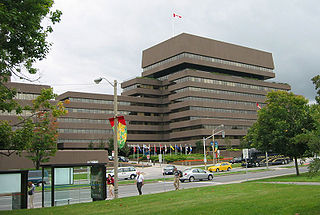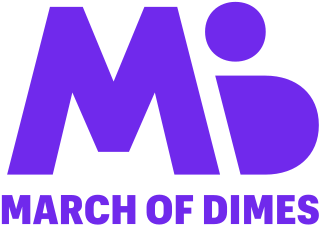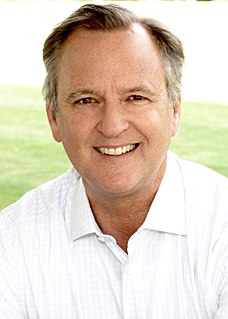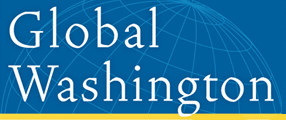
The Ministry of Foreign Affairs is responsible for managing the foreign relations of Brazil. Brazil is a significant political and economic power in Latin America and a key player on the world stage. Brazil's foreign policy reflects its role as a regional power and a potential world power and is designed to help protect the country's national interests, national security, ideological goals, and economic prosperity.

Foreign relations of Kazakhstan are primarily based on economic and political security. The Nazarbayev administration has tried to balance relations with Russia and the United States by sending petroleum and natural gas to its northern neighbor at artificially low prices while assisting the U.S. in the War on Terror. Kazakhstan is a member of the United Nations, Organization for Security and Co-operation in Europe, North Atlantic Cooperation Council, Commonwealth of Independent States, the Shanghai Cooperation Organisation, and NATO's Partnership for Peace program. Kazakhstan established a customs union with Russia and Belarus, transformed into the Eurasian Economical Community then in 2015 into the Eurasian Economic Union. President Nazarbayev has prioritized economic diplomacy into Kazakhstan's foreign policy.

Since its independence in 1961, Kuwait maintained strong international relations with most countries, especially nations within the Arab world. Its vast oil reserves gives it a prominent voice in global economic forums and organizations like the OPEC. Kuwait is also a major ally of ASEAN, and a regional ally of China.

The Reagan Doctrine was stated by Reagan in his State of the Union message on February 6, 1985: "We must not break faith with those who are risking their lives--on every continent from Afghanistan to Nicaragua--to defy Soviet-supported aggression and secure rights which have been ours from birth." It was a strategy implemented by the Reagan Administration to overwhelm the global influence of the Soviet Union in the late Cold War. The doctrine was a centerpiece of United States foreign policy from the early 1980s until the end of the Cold War in 1991.
The United States Agency for International Development (USAID) is an independent agency of the United States federal government that is primarily responsible for administering civilian foreign aid and development assistance. With a budget of over $27 billion, USAID is one of the largest official aid agencies in the world, and accounts for more than half of all U.S. foreign assistance—the highest in the world in absolute dollar terms.
Bill & Melinda Gates Foundation (BMGF), previously branded as the 'William H. Gates Foundation', is a private foundation founded by Bill and Melinda Gates. Based in Seattle, Washington, it was launched in 2000 and is said to be the largest private foundation in the world, holding $50.7 billion in assets. The primary aims of the foundation are, globally, to enhance healthcare and reduce extreme poverty, and, in the U.S., to expand educational opportunities and access to information technology. The foundation is controlled by its three trustees: Bill and Melinda Gates, and Warren Buffett. Other principal officers include Co-Chair William H. Gates, Sr. and Chief Executive Officer Susan Desmond-Hellmann.

The foreign relations of Canada are Canada's relations with other governments and peoples. Britain was the chief foreign contact before World War II. Since then Canada's most important relationship, being the largest trading relationship in the world, is with the United States. However, Canadian governments have traditionally maintained active relations with other nations, mostly through multilateral organizations such as the United Nations, the Commonwealth of Nations, La Francophonie, the Organization of American States, and the North Atlantic Treaty Organization (NATO).

March of Dimes is a United States nonprofit organization that works to improve for the health of mothers and babies. According to its website, "We believe that every baby deserves the best possible start. Unfortunately, not all babies get one. We are changing that."

The ONE Campaign is an international, nonpartisan, non-profit, advocacy and campaigning organization that fights extreme poverty and preventable disease, particularly in Africa, by raising public awareness and pressuring political leaders to support policies and programs that are saving lives and improving futures.

R. Nicholas Burns is a university professor, columnist, lecturer and former American diplomat. He is currently Professor of the Practice of Diplomacy and International Politics at Harvard's John F. Kennedy School of Government and a member of the Board of Directors of the school's Belfer Center for Science and International Affairs. At the Harvard Kennedy School, he is director of The Future of Diplomacy Project and Faculty Chair for the programs on the Middle East and India and South Asia. He is Director of the Aspen Strategy Group, senior counselor at The Cohen Group and serves on the Board of Directors of Entegris, Inc. He writes a bi-weekly column on foreign affairs for The Boston Globe and is a senior foreign affairs columnist for GlobalPost. He also serves on the Board of Directors of the Council on Foreign Relations, Special Olympics, the Rockefeller Brothers Fund, the Atlantic Council, the Appeal of Conscience Foundation, the Center for the Study of the Presidency and Congress, American Media Abroad, the Gennadius Library and the Richard Lounsbery Foundation.

The Clinton Foundation is a non-profit organization under section 501(c)(3) of the U.S. tax code. It was established by former President of the United States Bill Clinton with the stated mission to "strengthen the capacity of people in the United States and throughout the world to meet the challenges of global interdependence." Its offices are located in New York City and Little Rock, Arkansas.

The Center for Global Development (CGD) is a nonprofit think tank based in Washington, D.C. and London that focuses on international development.

The United States and Belgium maintain a friendly bilateral relationship. Continuing to celebrate cooperative U.S. and Belgian relations, 2007 marked the 175th anniversary of the nations' relationship.
Pakistan receives foreign aid from several countries and international organizations. Since the start of the War in Afghanistan, the majority of the aid comes from the United States via the Coalition Support Fund which is reimbursement to Pakistan for counter-terrorism operations. Foreign aid from America has been stopped in 2018.

The Millennium Foundation for Innovative Finance for Health is an independent, non-profit Swiss organization, established in November 2008 in order to create new ways to finance health systems in low- and middle-income countries. Based in Geneva, Switzerland, the Millennium Foundation aims to ensure that international commitments on improving health care are met through the development of innovative financing projects. Its first such project – called MassiveGood – was launched on 4 March, and will give travelers the possibility to add a $2, £2 or €2 micro-contribution to the purchase of a travel reservation, with all proceeds going to the fight against HIV/AIDS, malaria and tuberculosis.

The Eastern Congo Initiative (ECI) is an American nonprofit organization established by Ben Affleck and Whitney Williams in 2010 as "the first U.S.-based advocacy and grant-making initiative wholly focused on working with and for the people of eastern Congo". ECI provides development grants and international advocacy for community-building initiatives in the Democratic Republic of Congo.

David J. Lane was named president of The Annenberg Foundation Trust in September 2016. The non-profit organization operates The Annenberg Retreat at Sunnylands in Rancho Mirage, California. Lane is chairman of The Stimson Center.
Grand Challenges Canada (GCC) is a Canadian nonprofit organization that uses a Grand Challenges model to fund solutions to critical health and development challenges in the developing world. Its mission is to use "integrated innovation" that combines scientific, business and social aspects to save and improve lives in low- and lower-middle-income countries.
William H. Clapp is a social entrepreneur, philanthropist, business executive and founder and former chairman of the Matthew G. Norton Company, a property management firm based in Seattle. He is also the founder, along with his wife Paula, of Global Partnerships, Global Washington, and Seattle International Foundation.
















